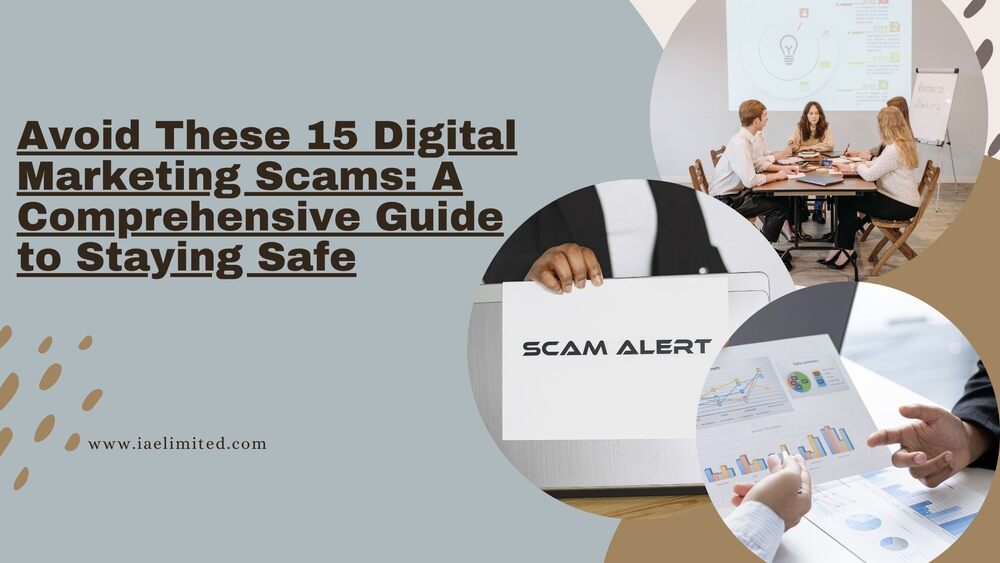New Career Path: Moving into Digital Marketing from an Unrelated Profession

Are you considering a career change into digital marketing? You’re not alone. With the increasing demand for digital marketers and the exciting opportunities it offers, many professionals are looking to make a move into this dynamic field.
This guide will provide you with a step-by-step approach to transitioning into a digital marketing career, regardless of your current background.
Introduction: The Rise of Digital Marketing
Table of Contents

Understanding the Digital Marketing Landscape
Digital marketing has become a cornerstone of modern business strategies. It involves using digital channels to promote products and services to consumers. This includes a wide range of tactics such as search engine optimization (SEO), content marketing, social media marketing, email marketing, and more. The digital marketing industry is projected to grow significantly in the coming years, with more businesses shifting their marketing budgets to online platforms.
Why Digital Marketing is a Lucrative Career Choice
A career in digital marketing offers numerous benefits. It provides a blend of creativity and data-driven decision-making, allowing you to utilize various skills. Moreover, digital marketing roles often come with the flexibility to work remotely, diverse job opportunities, and competitive salaries. According to the Bureau of Labor Statistics, the employment of marketing managers is expected to grow 10% from 2022 to 2032, faster than the average for all occupations.
Assessing Your Current Skills and Strengths
Identifying Transferable Skills
Transitioning to digital marketing doesn’t mean starting from scratch. Many skills you’ve developed in your current career can be valuable in digital marketing. For instance, if you have a background in sales, your skills in understanding customer needs and negotiating can be useful in roles like digital strategy or account management. Similarly, analytical skills from a background in data analysis or finance can help you succeed in roles like SEO or PPC management.
Bridging the Skills Gap
Once you’ve identified your transferable skills, it’s essential to determine the skills you need to develop. Digital marketing requires specific knowledge in areas such as SEO, social media management, and data analysis. Enrolling in online courses, attending workshops, or obtaining certifications can help bridge the skills gap and prepare you for your new career.
Exploring Digital Marketing Roles
Key Areas of Digital Marketing
Digital marketing encompasses several key areas, each offering unique career opportunities. Here are some of the most common roles in digital marketing:
- SEO Specialist: Focuses on optimizing websites to improve their search engine rankings and increase organic traffic.
- Content Marketer: Creates and manages content strategies to attract and engage target audiences.
- Social Media Manager: Develops and executes social media strategies to build brand awareness and engagement.
- Email Marketing Specialist: Designs and implements email campaigns to nurture leads and drive conversions.
- PPC Specialist: Manages pay-per-click advertising campaigns to drive targeted traffic and conversions.
Choosing the Right Role for You
When choosing a digital marketing role, consider your interests, strengths, and career goals. For example, if you enjoy writing and storytelling, a content marketing role may be a good fit. If you’re data-driven and enjoy working with numbers, consider a role in SEO or PPC.
Developing Digital Marketing Skills
Online Courses and Certifications
Online courses and certifications are a great way to learn digital marketing skills. Platforms like Coursera, Udemy, and LinkedIn Learning offer courses in various digital marketing topics. Additionally, obtaining certifications from recognized organizations like Google, HubSpot, and Facebook can enhance your credibility and help you stand out in the job market.
Self-Learning Resources
In addition to formal courses, self-learning is crucial for staying updated in the fast-paced world of digital marketing. Follow industry blogs, podcasts, and YouTube channels to learn from experts and gain insights into the latest trends and best practices. Some popular resources include:
- Blogs: Moz, Neil Patel, Search Engine Journal
- Podcasts: The DigitalMarketer Podcast, Social Media Examiner Show
- YouTube Channels: Ahrefs, SEMrush
Practical Experience
Hands-on experience is essential for applying your skills and building a portfolio. Look for internships, freelance opportunities, or volunteer projects to gain practical experience. You can also create your own projects, such as a personal blog or social media accounts, to showcase your skills.
Building Your Personal Brand
Creating a Digital Marketing Portfolio
A strong digital marketing portfolio is crucial for showcasing your skills and projects to potential employers. Include examples of your work, such as blog posts, social media campaigns, and SEO projects. Highlight the results you achieved, such as increased website traffic, higher engagement rates, or improved search rankings.
Leveraging Social Media
Social media platforms like LinkedIn and Twitter are powerful tools for building your personal brand and connecting with industry professionals. Share your insights, participate in discussions, and engage with others in the digital marketing community. This will help you establish yourself as a thought leader and attract opportunities.
Networking in the Digital Marketing Industry
Joining Digital Marketing Communities
Networking is vital for career growth in digital marketing. Join online communities and forums, such as Reddit’s r/digital_marketing or Slack groups, to connect with like-minded professionals. These communities are great for exchanging ideas, asking questions, and staying updated on industry news.
Attending Industry Events
Industry events, such as conferences, workshops, and webinars, provide valuable opportunities to learn from experts and network with professionals. Look for local and virtual events that align with your interests and goals. Participating in these events can help you gain new insights and build meaningful connections.
Applying for Digital Marketing Jobs
Crafting a Compelling Resume
Your resume is your first impression on potential employers, so make it count. Highlight your relevant skills, experiences, and certifications. Use action verbs and quantify your achievements where possible. Tailor your resume to each job application to align with the specific requirements of the role.
Preparing for Interviews
Preparing for interviews is crucial for making a strong impression. Research the company and the role, and be ready to discuss your experience and how it relates to digital marketing. Practice common interview questions, such as “How do you stay updated with the latest digital marketing trends?” or “Can you describe a successful digital marketing campaign you’ve worked on?”
Navigating the First Few Months in a New Digital Marketing Role
Setting Expectations and Goals
In the first few months of your new role, set clear expectations and goals with your manager. This will help you stay focused and measure your progress. Identify key performance indicators (KPIs) that align with your role, such as website traffic, conversion rates, or social media engagement.
Adapting to a New Work Culture
Adapting to a new work culture is essential for building strong relationships with your colleagues and excelling in your role. Observe and learn from your teammates, and don’t be afraid to ask questions. Be open to feedback and continuously seek opportunities to improve your skills and contribute to the team.
Overcoming Challenges in Your New Career
Dealing with Imposter Syndrome
Imposter syndrome is common among professionals transitioning to a new career, especially in a fast-paced field like digital marketing. To overcome imposter syndrome, focus on your achievements and the value you bring to the team. Remember that learning and growth are ongoing processes, and it’s okay to ask for help or guidance when needed.
Staying Updated with Industry Changes
The digital marketing landscape is constantly evolving, with new technologies and trends emerging regularly. Stay updated by following industry news, attending webinars, and participating in workshops. Continuous learning will help you adapt to changes and stay ahead of the competition.
Success Stories: Inspiring Transitions to Digital Marketing
Profiles of Successful Digital Marketers
Reading about the experiences of others who have successfully transitioned to digital marketing can be motivating and inspiring. Look for profiles of professionals who have made similar career shifts and learn from their journeys. Understand their strategies, challenges, and the steps they took to succeed.
Lessons Learned and Advice
Learn from the lessons and advice shared by successful digital marketers. They can provide valuable insights into what worked for them and what didn’t, helping you avoid common pitfalls and make informed decisions.
Frequently Asked Questions (FAQ)
What is the best way to get started in digital marketing?
The best way to start in digital marketing is by gaining a foundational understanding of key concepts and skills through online courses and certifications. Practice your skills through hands-on projects, and network with professionals in the industry to learn and grow.
How long does it take to become proficient in digital marketing?
The time it takes to become proficient in digital marketing varies depending on your prior experience and the time you dedicate to learning. On average, it can take anywhere from a few months to a year to develop a strong understanding of digital marketing concepts and gain practical experience.
Do I need a degree in digital marketing to get a job?
While a degree in digital marketing can be beneficial, it is not always necessary. Many digital marketing professionals have transitioned from unrelated fields and built successful careers through self-learning, certifications, and practical experience
How can I stand out to employers in the digital marketing field?
To stand out to employers, focus on building a strong portfolio, obtaining relevant certifications, and showcasing your skills and achievements. Networking with industry professionals and participating in industry events can also help you make valuable connections and increase your visibility.
What are the most in-demand skills in digital marketing?
The most in-demand skills in digital marketing include SEO, content creation, data analysis, social media management, and email marketing. Proficiency in using tools like Google Analytics, Google Ads, and social media platforms is also highly valued by employers.
How do I build a network in the digital marketing industry?
To build a network in the digital marketing industry, engage with professionals on platforms like LinkedIn and Twitter, join online communities and forums, and attend industry events and webinars. Building relationships with peers and mentors can provide valuable insights and opportunities.
What are the challenges of transitioning into a digital marketing career?
Some challenges of transitioning into a digital marketing career include learning new technical skills, adapting to a fast-paced and constantly evolving industry, and overcoming imposter syndrome. However, with dedication and the right resources, these challenges can be overcome.
Can I work remotely in digital marketing?
Yes, many digital marketing roles offer the flexibility to work remotely. Remote work is common in digital marketing due to the nature of the work, which often involves online platforms and tools. This allows digital marketers to work from anywhere with an internet connection.
How do I measure success in a digital marketing role?
Success in a digital marketing role is typically measured by key performance indicators (KPIs) such as website traffic, conversion rates, social media engagement, email open rates, and return on investment (ROI). Setting clear goals and regularly reviewing your performance against these metrics is essential for success.
What are the typical salaries for digital marketing roles?
Salaries for digital marketing roles vary depending on experience, specialization, and location. Entry-level positions typically start around $40,000 to $50,000 per year, while experienced digital marketers can earn $70,000 to $100,000 or more annually. Specializations like SEO, PPC, and content marketing often command higher salaries.
Conclusion: Embracing a New Career Path
Recap of Key Points
Transitioning into a digital marketing career from an unrelated field may seem daunting, but it is achievable with the right approach. Start by assessing your current skills and identifying those that are transferable to digital marketing.
Develop new skills through online courses, certifications, and practical experience. Build your personal brand and network within the industry to open up opportunities. Remember to stay updated with industry trends and continuously refine your skills.
Encouragement for Future Digital Marketers
Making a career change can be challenging, but with determination and a willingness to learn, you can successfully transition into a digital marketing career. Embrace the opportunities and challenges that come with this dynamic field, and take proactive steps to build your skills and network. Your journey into digital marketing can lead to a rewarding and fulfilling career.
In case you missed it, we recently published a post on 84 Essential Digital Marketing Interview Questions and Answers for 2024.





